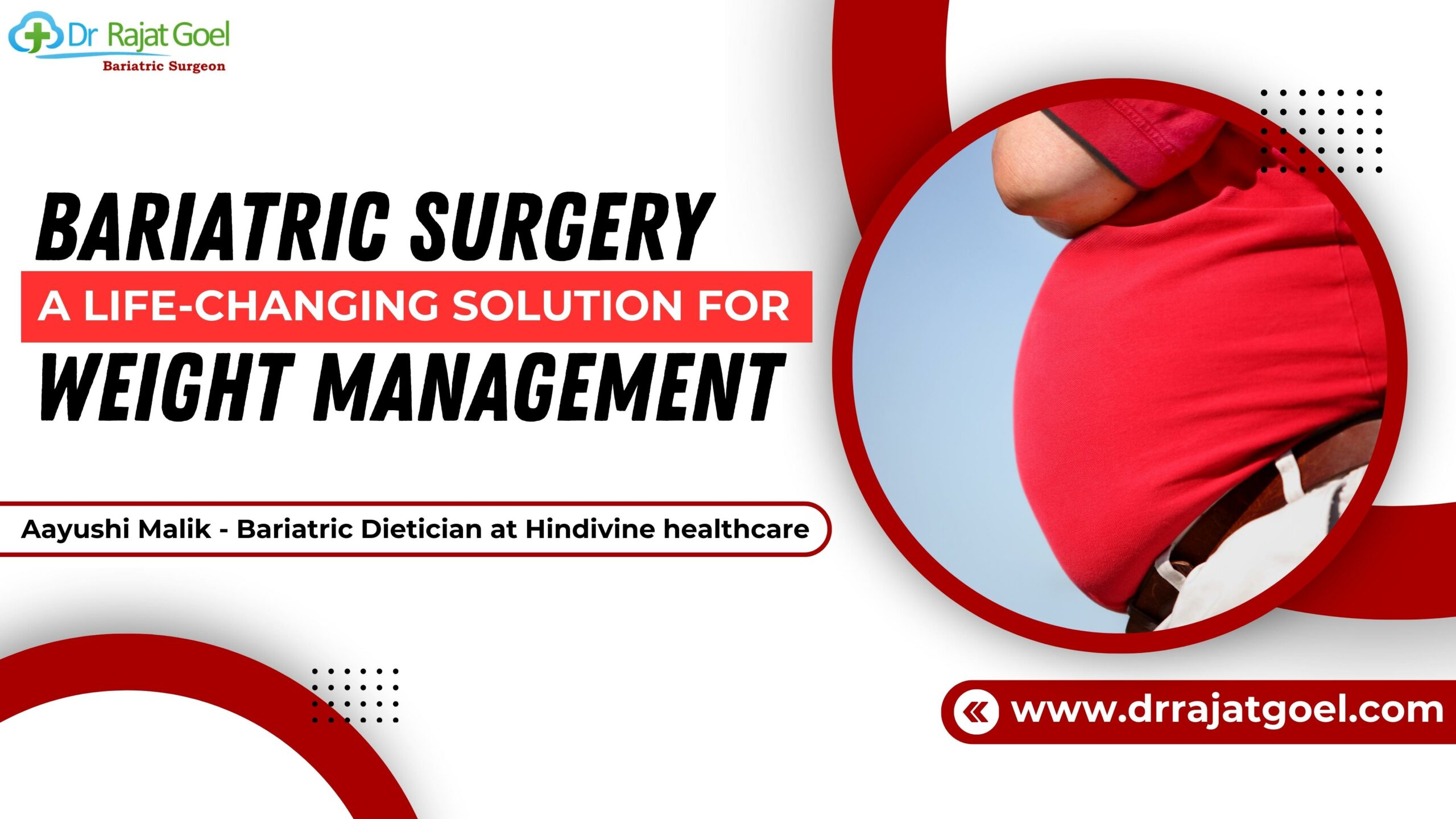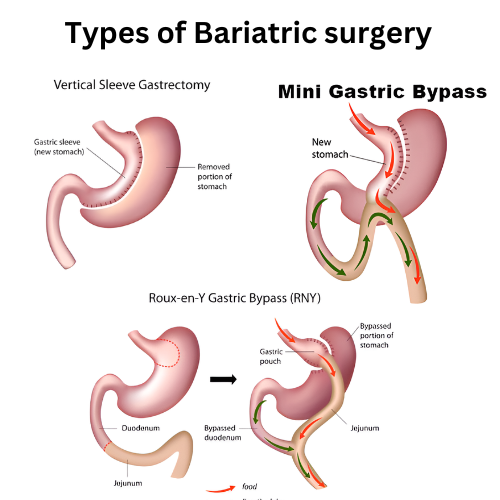
- Bariatric Surgery
-
by Aayushi Malik
Understanding about Bariatric Surgery is important for those who are seeking long-term weight loss options. Bariatric surgery can provide significant weight loss for those struggling with obesity. It is a surgical intervention that alters the digestive process. This, in turn, helps individuals lose weight and maintain a healthier lifestyle. Bariatric surgery is not a quick fix, but rather is a tool to aid in weight loss efforts. It requires significant lifestyle changes and a commitment to achieve long-term success. By understanding the benefits and risks of bariatric surgery, individuals can make an informed decision . Weight management is a lifelong journey, and bariatric surgery can be a powerful stepping stone towards a healthier future.
Introduction:
Obesity is a major worry that impacts many people in today’s society globally. Individuals who are facing challenges with gaining too much weight and the related health problems that come with it now have a potentially life-changing option available for them known as bariatric surgery. The field of bariatric surgery involves surgical procedures that alter the digestive system to assist in weight loss. In this post, we will take a deep dive into the realm of bariatric surgery, examining its various forms, advantages, potential risks, and the lifestyle shifts that come with undergoing this transformative experience.
There are various types of bariatric surgery available for individuals struggling with weight loss. These surgical procedures are effective in aiding weight loss and improving overall health. Some common types of bariatric surgery include gastric bypass, gastric sleeve, and gastric banding. Gastric bypass surgery involves bypassing a portion of the small intestine, resulting in reduced calorie absorption. Gastric sleeve surgery involves removing a large portion of the stomach, resulting in reduced food intake. Gastric banding involves placing a band around the upper part of the stomach, creating a smaller pouch for food consumption. Each type of bariatric surgery has its own benefits and potential risks, so it is important for individuals to consult with a healthcare professional to determine the most suitable option for their specific needs.
The commonly performed procedures encompass:
1. Reducing the size of the stomach and changing the digestive pathway, gastric bypass creates a small pouch at the top of the stomach and bypasses a section of the small intestine. As a result, food intake is limited and calorie absorption gets decreased.
2. Gastric sleeve surgery, otherwise called sleeve gastrectomy, is a medical procedure where a big part of the stomach is removed, which results in a sleeve or tube shaped like a banana being left behind. Due to the smaller size of the stomach, the amount of food that can be eaten is limited, ultimately leading to weight loss.
3. An inflatable band is positioned around the upper part of the stomach during the adjustable gastric banding procedure, resulting in creation of a small pouch. By controlling the movement of food, the band can help to induce a sense of fullness and restrict the amount of food that is consumed.
Benefits of Bariatric Surgery:
- When it comes to achieving significant and sustainable weight loss bariatric surgery proves instrumental – especially when non surgical methods fall short. The extent of weight loss attained through this procedure may vary based on factors unique to each individual.
- What sets bariatric surgery apart is its ability not only to facilitate weight loss but also contribute towards resolving or ameliorating various obesity related health conditions?Conditions such as type 2 diabetes high blood pressure. Sleep apnea, and joint problems often witness substantial progress or complete resolution following surgical intervention.
- Improved Quality of life – It is essential to recognize that shedding excess weight holds immense potential for enhancing an individual’ s quality of life significantly. Following bariatric surgery. Individuals often encounter increased mobility levels alongside heightened self esteem levels alongside reduced psychological distress – factors that foster better social interactions while making once challenging activities more approachable and attainable.
Risks and Contraindications
The potential risks when it comes to bariatric surgery, despite its many benefits have been discussed below.
1.Complications from surgery, including infection, bleeding, blood clots, and adverse reactions to anesthesia, are risks that should be thoroughly discussed with your healthcare provider. These risks, although generally low, exist for any surgical procedure.
- Monitoring and maintaining appropriate nutritional levels is crucial post-bariatric surgery due to the potential for lifelong deficiencies in vitamins and minerals. The altered digestive system can limit absorption of certain nutrients, necessitating the need for lifelong supplementation.
- Committing to lifelong dietary modifications is crucial after undergoing bariatric surgery. These modifications include controlling portion sizes, planning meals, and avoiding specific foods. By making these adjustments, individuals can ensure successful weight loss and maintenance.
Lifestyle Changes and Ongoing Support:
- Achieving weight loss through bariatric surgery is not a quick fix strategy. Rather it demands an enduring dedication towards implementing substantial lifestyle changes in order to achieve successful outcomes.
Common adjustments include maintaining consistent physical activity levels adhering to a healthy and balanced diet plan skillfully managing stressors in one’s life and attending to any underlying emotional factors connected to eating behaviors.
2. Continuous support remains integral after undergoing the surgical procedure. Numerous bariatric surgery programs offer extensive supportive services encompassing counseling sessions for psychological well being maintenance purposes or seeking nutritional guidance from experts as well as participation options within support groups amongst peers undergoing similar challenges on their weight loss journey
Conclusion:
Of all the solutions available to those dealing with obesity and its associated health problems, bariatric surgery stands out as a truly transformative option. However, it is crucial to fully comprehend the various procedures, risks, and lifestyle adjustments that come along with this path. By combining the surgery with ongoing support and a dedication to healthy habits, one can set themselves up for lasting weight control, improved health, and an overall better life. Always seek guidance from a healthcare professional to determine the best course of action based on your specific circumstances.









